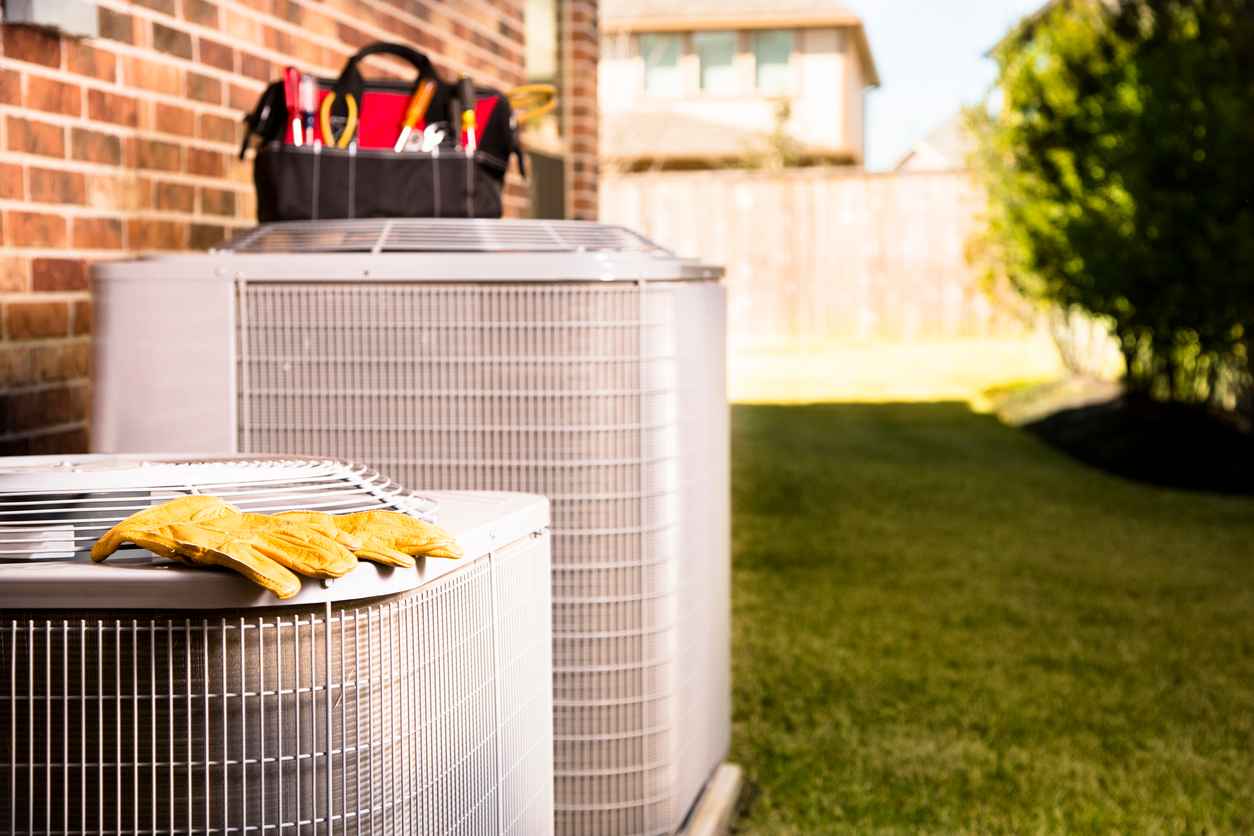Need Service Today? Contact Us Now!

When your air conditioner starts blowing warm air or making strange noises, it’s only natural to wonder what comes next. Should you call for a quick repair, or is it time to invest in a brand-new system? This is a common question for homeowners—especially during California’s hot summers when you need reliable comfort fast.
While repairs can seem more convenient and less costly in the moment, they aren’t always the best choice in the long run. On the flip side, replacing your AC is a bigger investment but may offer better efficiency and savings over time. In this blog, we’ll help you understand when it’s better to repair and when it’s time to replace your air conditioner.
Understanding the Problem with Your AC
Air conditioning problems don’t always happen overnight. Many issues build up slowly, starting with small warning signs like uneven cooling or odd sounds. Ignoring these early red flags can lead to larger system breakdowns—and higher costs. Whether it’s poor performance, high energy bills, or recurring breakdowns, recognizing the scope of your AC’s problems is the first step in making the right decision. In some cases, a repair can keep your unit running smoothly. In others, it might just be delaying the inevitable. That’s why it’s important to evaluate the overall condition of your system and how often it’s been acting up.
Key Signs Your AC Might Need Replacement
Before deciding whether to repair or replace your air conditioner, it helps to know the signs that suggest your unit is nearing the end of its useful life. If you notice several of the following issues, replacement may be the better long-term choice.
Your AC is Over 10-15 Years Old
Most air conditioning systems last between 10 to 15 years with proper maintenance. If your unit is approaching or has exceeded this age range, it may no longer cool efficiently or keep up with your comfort needs. Newer models are also significantly more energy-efficient.
Frequent Breakdowns
If you’re calling for repairs more than once a year, your system may be costing more in service calls than it’s worth. Recurring breakdowns are a clear sign that internal components are failing and your AC may be wearing out.
Rising Energy Bills
Have your utility costs increased without a clear explanation? Older or damaged AC units often run inefficiently, which means they use more energy to provide less cooling. This inefficiency could be driving up your energy bills unnecessarily.
Inconsistent Cooling or Poor Airflow
Uneven temperatures throughout your home or weak airflow from vents could signal duct issues, a failing compressor, or other major problems. If the airflow doesn’t improve after a repair, replacing the system might be your best bet.
Strange Noises or Odors
Buzzing, rattling, banging, or musty smells aren’t normal. These could be signs of electrical issues, mold, or mechanical failure—all problems that often make replacement a smarter option than repeated repairs.
When a Repair Makes Sense
While replacing your air conditioner may be necessary in some situations, there are also times when a repair is the more cost-effective and logical option. If your AC is still within its prime years and the issue is relatively minor, a repair can quickly restore comfort without the major investment of a new unit.
The System is Still Under 10 Years Old
If your AC unit is relatively young and has been well-maintained, it still has a good amount of life left in it. Most components can be replaced or adjusted without having to overhaul the entire system.
The Repair Cost is Unreasonable
A common rule of thumb is this: if the repair costs less than 50% of what it would cost to replace the unit, and the system is younger than 10 years, a repair is usually the right call.
No Major Performance Issues
If your unit is cooling well, running efficiently, and only has a small issue—like a broken capacitor, refrigerant leak, or faulty thermostat—those are often easy and inexpensive fixes.
Energy Bills are Stable
If your energy costs haven’t increased dramatically and your AC seems to be operating normally aside from the current issue, you likely don’t need a replacement just yet.
What to Consider Before Making Decision
Before you commit to either repairing or replacing your AC system, take a step back and consider the full picture. The right choice often depends on your budget, long-term homeownership plans, and how well your system has been performing overall.
Age of the System
If your AC is approaching or past the 10-15 year mark, a replacement may be the smarter investment. Newer systems are more efficient and come with updated features that can save you money over time.
Frequency of Repairs
If you’re calling for service more than once a year—or dealing with repeated issues—it may be more cost-effective in the long run to install a new unit rather than continue patchwork repairs.
Energy Efficiency Goals
Upgrading to a newer, high-efficiency system could significantly reduce your energy bills, especially if your current unit has a low SEER (Seasonal Energy Efficiency Ratio) rating.
Home Comfort and Air Quality
If your current AC struggles to maintain consistent temperatures or keep humidity under control, a new unit could offer better indoor comfort and air quality.
Trust Rocklin Heating & Air for Honest AC Advice
Deciding whether to repair or replace your air conditioner isn’t always straightforward—but it doesn’t have to be a guessing game. By looking at the age, repair history, energy efficiency, and comfort levels in your home, you can make a confident and informed choice.
At Rocklin Heating & Air, we believe in giving honest recommendations based on what’s best for your home and budget. Whether you need a simple fix or you’re ready for a full upgrade, our team is here to help every step of the way. Contact us today to schedule your AC evaluation and find the solution that’s right for you.

